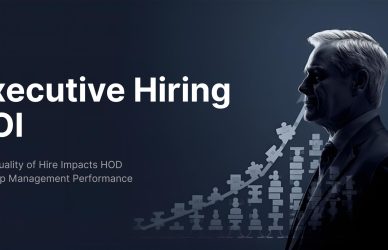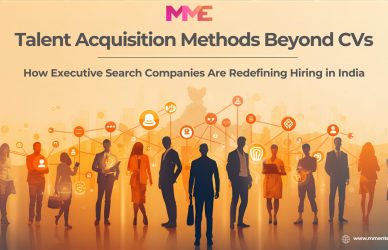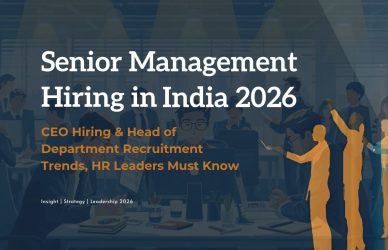Introduction: The Rise of PEOs in HR Services
Brief History of Professional Employer Organizations (PEOs)
The concept of Professional Employer Organizations (PEOs) dates back to the late 20th century when businesses sought alternative solutions to manage their workforce efficiently. Initially, small businesses struggled with HR complexities, compliance regulations, and employee benefits, leading to the emergence of PEOs as third-party HR service providers. Over the decades, PEOs have evolved into full-fledged partners offering payroll management, benefits administration, compliance solutions, and talent management services, helping businesses focus on core operations.
Why Businesses Are Turning to Outsourced HR Solutions
The increasing complexity of employment laws, tax regulations, and workforce management challenges has driven businesses to seek outsourced HR solutions. PEOs offer a cost-effective and efficient way to manage human resources, reducing administrative burdens while ensuring compliance. Small and medium-sized enterprises (SMEs) particularly benefit from PEO services, as they gain access to enterprise-level HR support without the need for an in-house HR team. Additionally, PEOs help businesses provide competitive benefits, improving employee satisfaction and retention.
The Changing Role of HR and How PEOs Fit into Modern Workforce Management
Traditionally, HR departments focused on administrative tasks such as payroll processing, hiring, and compliance. However, as businesses embrace digital transformation and remote work, HR functions have shifted towards strategic workforce planning, employee engagement, and organizational growth. PEOs align with this transformation by taking over transactional HR functions, allowing internal HR teams to focus on higher-value activities such as talent development, diversity initiatives, and workplace culture enhancement.
Overview of How PEOs Are Reshaping Traditional HR Functions
PEOs are redefining traditional HR by integrating technology-driven solutions, automating payroll and benefits management, and ensuring compliance with ever-changing labor laws. Their ability to streamline workforce management, provide expert HR support, and enhance operational efficiency makes them a key player in the modern HR landscape.

Understanding the Core Functions of PEOs
Defining What a PEO Does
A Professional Employer Organization (PEO) is a third-party service provider that takes on key human resource responsibilities for businesses. Through a co-employment model, PEOs manage payroll, benefits, compliance, and workforce administration, allowing companies to focus on their core operations. This strategic partnership helps businesses reduce administrative burdens, ensure legal compliance, and enhance employee experience.
Key HR Functions Managed by PEOs
PEOs handle a wide range of HR functions, offering businesses a streamlined approach to workforce management. Some of the most critical functions include:
Payroll and Tax Compliance
PEOs take full responsibility for payroll processing, ensuring accurate salary disbursement and tax deductions. They manage employee paychecks, direct deposits, and tax withholdings while staying updated with changes in tax laws. By handling federal, state, and local tax compliance, PEOs reduce the risk of payroll errors and penalties.
Employee Benefits Administration
One of the biggest advantages of partnering with a PEO is access to comprehensive employee benefits. PEOs negotiate competitive benefits packages, including health insurance, retirement plans, life insurance, and wellness programs. Small and medium-sized enterprises (SMEs) particularly benefit from this, as they gain access to benefits typically reserved for large corporations.
Compliance and Risk Management
Navigating labor laws and regulatory frameworks can be challenging for businesses. PEOs ensure compliance with employment laws, industry regulations, and workplace safety standards. They also manage workers’ compensation, unemployment claims, and dispute resolution, minimizing legal risks for companies.
Recruitment and Workforce Management
PEOs assist businesses with talent acquisition by sourcing, screening, and hiring top candidates. They manage onboarding, employee training, and performance evaluations, ensuring a smooth hiring process. Additionally, PEOs provide workforce analytics to optimize hiring strategies and enhance employee retention.
Difference Between PEOs and Traditional HR Departments
Unlike in-house HR departments that manage employees directly, PEOs operate through a co-employment model, where they share employment responsibilities with the client company. While HR departments focus on internal policies and corporate culture, PEOs provide expertise in compliance, payroll, and benefits administration. This external HR support allows businesses to scale efficiently without expanding their internal HR team.

The Evolution of PEO Services: From Traditional to Tech-Driven HR
The Early Days of PEOs – Focusing on Payroll and Basic Compliance
Professional Employer Organizations (PEOs) first emerged in the late 20th century as a response to the growing complexity of payroll management and regulatory compliance. Initially, PEOs were primarily focused on handling payroll processing, tax administration, and ensuring businesses adhered to local labor laws. These early PEOs served as outsourced HR departments for small and medium-sized enterprises (SMEs) that lacked the resources to manage these functions internally. Their core value proposition revolved around reducing administrative burdens, minimizing payroll errors, and ensuring compliance with ever-changing employment laws.
Shift Towards Comprehensive HR Solutions
As businesses grew and workforce management became more complex, PEOs expanded their services beyond basic payroll and compliance. The demand for more holistic HR solutions led PEOs to incorporate employee benefits administration, risk management, and recruitment support into their offerings. Companies began to rely on PEOs for a wide range of HR tasks, including performance management, employee training, workplace safety, and legal advisory services. This shift transformed PEOs from simple payroll processors to full-fledged strategic HR partners, helping businesses optimize their workforce and enhance employee satisfaction.
The Impact of Globalization on PEO Expansion
Globalization significantly influenced the evolution of PEO services. As companies expanded beyond their domestic markets, managing international employees and ensuring compliance with foreign labor laws became increasingly challenging. PEOs adapted to these challenges by offering global HR solutions, enabling companies to hire and manage employees across multiple countries without establishing legal entities in each location. International PEOs helped businesses navigate complex employment regulations, manage cross-border payroll, and provide region-specific benefits packages. This expansion allowed businesses to scale quickly and efficiently, reducing legal risks and administrative hurdles.
The Rise of Tech-Enabled PEOs Integrating AI, Automation, and Cloud Solutions
In recent years, technology has revolutionized the way PEOs operate. The integration of artificial intelligence (AI), automation, and cloud-based HR solutions has enhanced the efficiency and accuracy of PEO services. Modern PEOs leverage advanced HR software platforms to streamline payroll processing, benefits management, and workforce analytics. AI-powered tools assist in talent acquisition by using predictive analytics to identify the best candidates for specific roles. Automation has reduced manual tasks, improving compliance tracking and reducing human errors in payroll and tax filing.
Cloud-based PEO platforms have also improved accessibility and data security, allowing businesses to manage HR functions remotely and in real time. Employees can access self-service portals for benefits enrollment, payroll information, and performance tracking. These technological advancements have positioned PEOs as indispensable partners for businesses looking to stay agile in an increasingly digital and globalized economy.

How PEOs are Reshaping HR Management in 2025
The Modern Role of PEOs in Businesses of All Sizes
Professional Employer Organizations (PEOs) have evolved into essential HR partners, catering to businesses of all sizes. In 2025, PEOs are not just handling payroll and compliance but are actively involved in shaping workforce strategies, talent acquisition, and employee engagement. With advancements in technology, businesses now leverage PEOs to streamline HR operations, improve workforce productivity, and enhance employee experience.
By offering access to expert HR guidance, benefits management, and compliance support, PEOs enable businesses to focus on growth without being burdened by administrative complexities. As the workforce landscape continues to change, PEOs provide flexible HR solutions that align with remote work trends, hybrid work models, and evolving labor laws.
How PEOs Streamline HR Processes and Enhance Efficiency
Modern PEOs integrate advanced HR technologies, automation, and AI-driven analytics to optimize HR operations. Through cloud-based platforms, businesses can manage payroll, tax filings, employee benefits, and compliance in real-time. Automated payroll systems ensure accuracy and eliminate errors, while AI-driven analytics help businesses make data-driven HR decisions.
Additionally, PEOs simplify employee onboarding, performance tracking, and talent management by offering seamless HR workflows. Companies leveraging PEO services experience improved efficiency, reduced HR costs, and enhanced employee satisfaction. By taking over complex HR tasks, PEOs allow internal teams to focus on innovation and business expansion.
The Impact on Small and Medium-Sized Businesses (SMBs)
For SMBs, managing HR functions in-house can be challenging due to limited resources and expertise. PEOs provide a cost-effective alternative, offering enterprise-level HR solutions without the need for an internal HR department.
PEOs help SMBs attract and retain top talent by offering competitive benefits such as health insurance, retirement plans, and wellness programs. They also ensure compliance with labor laws, reducing legal risks and penalties. By outsourcing HR to PEOs, SMBs gain a strategic advantage, allowing them to compete with larger corporations in talent acquisition and workforce management.
Case for Large Enterprises: Why Even Major Corporations Leverage PEO Services
While SMBs benefit significantly from PEOs, large enterprises are also increasingly adopting PEO services to optimize HR operations. Even with dedicated HR teams, major corporations face challenges in managing global workforces, compliance regulations, and payroll across multiple regions.
PEOs assist large enterprises in managing multi-country payroll, ensuring regulatory compliance, and implementing uniform HR policies. They also provide workforce analytics, helping businesses refine hiring strategies and employee engagement programs. By partnering with PEOs, large organizations enhance operational efficiency, minimize compliance risks, and improve overall workforce management in an ever-evolving business environment.

Key Benefits of Partnering with a PEO
Cost Savings Through Economies of Scale
One of the most significant advantages of working with a Professional Employer Organization (PEO) is cost efficiency. By partnering with multiple businesses, PEOs achieve economies of scale, allowing them to negotiate better rates for essential HR services, such as payroll processing, employee benefits, and workers’ compensation insurance. Small and medium-sized businesses (SMBs) benefit from these reduced costs, gaining access to enterprise-level HR solutions without incurring high expenses. PEOs also help businesses minimize administrative overhead, enabling them to allocate resources toward growth and innovation.
Compliance Assurance in an Increasingly Regulated HR Environment
With labor laws and employment regulations evolving rapidly, maintaining compliance can be challenging for businesses. PEOs ensure that organizations stay up to date with local, state, and federal labor laws, minimizing the risk of legal complications, penalties, and lawsuits. They handle critical compliance tasks, including tax filings, employee classifications, wage regulations, and workplace safety requirements. By leveraging PEO expertise, businesses can focus on operations while mitigating legal risks associated with HR mismanagement.
Enhanced Employee Benefits and Retention Strategies
Attracting and retaining top talent is essential for business success, and a strong benefits package plays a crucial role in achieving this goal. PEOs provide access to high-quality employee benefits, such as health insurance, retirement plans, paid leave, and wellness programs. Because PEOs pool multiple businesses together, they can offer benefits at lower costs compared to what a single company might negotiate on its own. This not only improves employee satisfaction but also enhances retention rates, helping businesses build a stable and motivated workforce.
Access to Advanced HR Technology Without Heavy Investment
Modern HR management requires sophisticated technology to streamline operations, track workforce analytics, and ensure efficient payroll processing. However, investing in HR software can be costly for small and mid-sized businesses. PEOs offer access to advanced HR technology, including cloud-based payroll systems, employee self-service portals, automated compliance tracking, and AI-driven recruitment tools. Businesses that partner with a PEO benefit from these cutting-edge solutions without the burden of heavy capital investment.
Scalability and Flexibility for Growing Businesses
As businesses expand, their HR needs become more complex. PEOs provide scalable solutions that adapt to an organization’s growth, allowing companies to onboard employees quickly, expand into new markets, and manage workforce fluctuations efficiently. Whether a company is hiring remote workers, entering international markets, or scaling its operations domestically, a PEO ensures a seamless HR transition. The flexibility of PEO services enables businesses to remain agile and responsive to market changes while maintaining a compliant and well-managed workforce.

The Role of AI and Automation in PEO Services
How AI-Driven HR Solutions Are Improving Efficiency
Artificial intelligence (AI) is transforming HR management, and Professional Employer Organizations (PEOs) are at the forefront of this evolution. AI-driven HR solutions are automating time-consuming tasks, reducing human error, and streamlining decision-making processes. From resume screening and employee engagement tracking to performance management and personalized learning programs, AI enhances efficiency by analyzing vast amounts of HR data in real time. These advancements help businesses optimize workforce management, improve employee experience, and reduce operational costs.
Automation in Payroll Processing, Compliance Tracking, and Talent Acquisition
PEOs leverage automation to handle critical HR functions, ensuring accuracy and compliance in payroll, regulatory tracking, and hiring. Automated payroll systems eliminate manual data entry, reducing payroll errors and ensuring timely salary disbursements. Compliance tracking tools help businesses stay ahead of ever-changing labor laws, minimizing the risk of penalties and legal issues.
In talent acquisition, automation accelerates the recruitment process by using AI-powered applicant tracking systems (ATS) that scan resumes, match candidates to job descriptions, and identify the best-fit employees. This allows businesses to fill positions faster and with greater accuracy. Automation also enhances onboarding by streamlining documentation, training modules, and employee integration processes.
Predictive Analytics in Workforce Planning
Predictive analytics, powered by AI, is revolutionizing workforce planning by helping businesses anticipate hiring needs, employee turnover, and productivity trends. PEOs use predictive models to analyze workforce behavior, detect patterns, and provide data-driven insights that enable proactive decision-making.
For example, AI-powered analytics can identify signs of employee disengagement, allowing HR teams to take preventive measures before productivity declines. Additionally, businesses can forecast future skill gaps, ensuring they have the right talent in place to meet organizational goals. These insights enable companies to develop strategic workforce plans that align with long-term growth objectives.
Case Studies of PEOs Successfully Integrating AI into HR Functions
Several PEOs have successfully implemented AI-driven solutions to enhance HR efficiency.
Case Study 1: AI in Recruitment – A leading PEO introduced AI-powered recruitment tools that reduced hiring time by 50%. By leveraging machine learning algorithms, the system accurately matched candidates with job roles, improving hiring quality and reducing turnover rates.
Case Study 2: Automated Compliance Management – A global PEO integrated compliance automation software that continuously monitored labor law updates across multiple countries. This helped businesses avoid legal penalties and maintain seamless regulatory adherence.
Case Study 3: Predictive Employee Engagement – Using AI-driven sentiment analysis tools, a PEO identified factors contributing to employee dissatisfaction. By implementing proactive engagement strategies, the company improved retention rates by 30%.
The integration of AI and automation in PEO services is reshaping HR management, making it more efficient, data-driven, and scalable. As AI continues to evolve, PEOs will play an increasingly strategic role in helping businesses optimize workforce performance and navigate HR complexities.

Challenges and Considerations in PEO Adoption
Common Concerns Businesses Have About PEOs
Despite the growing popularity of Professional Employer Organizations (PEOs), some businesses remain hesitant to adopt these services. Common concerns include the fear of losing control over HR operations, data security risks, and uncertainty about how a PEO fits into the company’s culture. Business owners may worry that outsourcing HR functions will lead to a disconnect between management and employees. Additionally, some companies are concerned about hidden costs or contractual limitations that may affect their long-term HR strategy.
Legal and Compliance Challenges in Different Countries
One of the biggest challenges in PEO adoption is navigating the complex legal and regulatory landscape across different countries. Labor laws, tax regulations, and compliance requirements vary significantly from one region to another, and businesses must ensure that their chosen PEO provider has expertise in local employment laws. Non-compliance can lead to hefty fines, legal disputes, and reputational damage.
For businesses expanding internationally, understanding the distinction between a PEO and an Employer of Record (EOR) is crucial, as some countries have strict regulations about co-employment structures. Companies must work with PEO providers that have a strong track record in legal compliance and risk management.
Finding the Right PEO Partner for Industry-Specific Needs
Not all PEOs offer the same range of services or expertise in every industry. Businesses operating in highly regulated sectors such as healthcare, finance, or manufacturing require specialized HR solutions that meet industry-specific compliance standards. When selecting a PEO partner, companies should evaluate their industry experience, service offerings, and ability to customize HR solutions based on business needs. Choosing the wrong PEO provider can lead to inefficiencies and compliance risks, making due diligence a critical step in the selection process.
Addressing Misconceptions About Outsourcing HR Functions
Many businesses hesitate to partner with a PEO due to misconceptions about outsourcing HR functions. Some believe that working with a PEO means handing over complete control of employee management, when in reality, PEOs operate as co-employers, allowing businesses to retain decision-making power. Others assume that PEO services are only for small businesses, while in fact, large enterprises also use PEOs to streamline HR operations and manage international employees. Educating stakeholders about the benefits and flexibility of PEO services can help overcome these misconceptions and encourage businesses to leverage PEO solutions effectively.

Future Trends: Where PEOs Are Headed in the Next Decade
The Future of Remote Workforce Management Through PEOs
The rise of remote work has fundamentally changed how businesses manage their workforce. In the next decade, PEOs will play a pivotal role in facilitating seamless remote workforce management. By providing cloud-based HR solutions, virtual onboarding, and real-time performance tracking, PEOs will help businesses maintain productivity across distributed teams. Additionally, PEOs will focus on ensuring compliance with labor laws in different jurisdictions, helping companies navigate remote work regulations. The demand for flexible work arrangements will push PEOs to enhance their digital infrastructure, enabling businesses to manage employees across multiple time zones efficiently.
The Increasing Role of AI and Blockchain in HR Compliance
Artificial Intelligence (AI) and blockchain technology will transform HR compliance in the coming years. AI-driven tools will automate compliance tracking, helping businesses stay ahead of changing employment laws. Machine learning algorithms will assist in predictive workforce planning, ensuring companies anticipate staffing needs accurately. Blockchain will bring enhanced security and transparency to payroll processing, employee verification, and contract management. By leveraging these technologies, PEOs will reduce the risk of fraud, improve regulatory compliance, and streamline HR operations with greater accuracy.
Expansion of Global PEO Services to Meet Cross-Border Workforce Needs
As businesses continue to expand globally, the demand for international PEO services will surge. Companies looking to enter new markets without establishing a legal entity will rely on PEOs to manage employment contracts, payroll, and benefits administration across multiple countries. The next decade will see PEOs enhancing their cross-border service offerings, providing businesses with more localized HR solutions. By handling complex compliance requirements in different regions, PEOs will enable seamless global workforce expansion, making international hiring more accessible and cost-effective.
Sustainability and ESG (Environmental, Social, and Governance) in HR Management
Sustainability and ESG considerations are becoming increasingly important in workforce management. PEOs will play a vital role in helping companies align their HR policies with ESG goals. This includes implementing fair labor practices, promoting diversity and inclusion, and offering sustainable employee benefits. PEOs will also assist businesses in reporting ESG metrics related to workforce well-being, corporate social responsibility (CSR), and ethical labor practices. As ESG compliance becomes a priority for investors and regulators, PEOs will help businesses build socially responsible HR frameworks that enhance employee engagement and brand reputation.

Case Studies: Success Stories of Companies Leveraging PEOs
Examples of Companies That Achieved Growth and Compliance Through PEOs
Many businesses have successfully scaled their operations by partnering with Professional Employer Organizations (PEOs). One such example is a mid-sized tech startup that expanded from 50 to 500 employees across multiple states in just three years. By outsourcing HR functions to a PEO, the company was able to focus on product development while ensuring compliance with labor laws in each state. The PEO handled payroll processing, tax filings, and employee benefits, allowing the company to maintain efficiency while growing rapidly.
Another case involves a healthcare provider that struggled with compliance due to ever-changing labor regulations. By working with a PEO, the organization ensured adherence to healthcare industry-specific laws, streamlined payroll management, and gained access to better employee benefits packages. As a result, the company reduced compliance risks, improved employee retention, and enhanced operational stability.
How PEO Services Helped Businesses Navigate Economic Downturns
During economic downturns, businesses often face financial strain and workforce management challenges. A manufacturing firm that experienced a sharp decline in demand during a recession leveraged PEO services to optimize HR costs. The PEO provided strategic workforce planning, helping the company restructure its operations while retaining key employees. By managing cost-effective benefits packages and offering flexible payroll solutions, the PEO allowed the business to remain operational without major layoffs.
Similarly, a retail company affected by the COVID-19 pandemic turned to a PEO to manage remote work transitions, unemployment claims, and government assistance programs. The PEO played a crucial role in guiding the company through workforce adjustments, ensuring compliance with emergency labor laws, and maintaining employee engagement during the crisis.
Industry-Specific PEO Adoption Trends in IT, Healthcare, and Manufacturing
The IT sector has widely embraced PEO services to handle global workforce expansion. With PEOs managing international payroll, visa processing, and remote employee benefits, IT firms can focus on innovation and project execution without administrative burdens.
In healthcare, PEOs are essential in ensuring regulatory compliance, managing credentialing requirements, and offering competitive benefits to medical professionals. Healthcare providers rely on PEOs to streamline HR operations while meeting strict industry standards.
Manufacturing companies benefit from PEOs in workforce management, especially in handling seasonal employment fluctuations, safety compliance, and workers’ compensation claims. PEOs help these businesses optimize workforce productivity while ensuring adherence to labor laws and operational efficiency.

Conclusion: Embracing PEOs for a Smarter HR Future
The Undeniable Role of PEOs in the Future of HR
As businesses adapt to evolving workforce demands, Professional Employer Organizations (PEOs) have become indispensable partners in managing HR functions. The increasing complexity of labor laws, remote work trends, and the need for streamlined HR operations make PEOs an essential solution for companies of all sizes. With their expertise in payroll management, compliance assurance, and employee benefits administration, PEOs are shaping the future of HR by offering comprehensive, technology-driven solutions. As companies seek agility and efficiency, the demand for PEO services will only continue to grow.
How Businesses Can Maximize Efficiency and Employee Satisfaction Through PEOs
PEOs enable businesses to focus on growth by offloading administrative burdens. By leveraging automated payroll systems, AI-driven compliance tracking, and strategic workforce planning, companies can significantly enhance operational efficiency. Additionally, PEOs provide access to high-quality employee benefits, boosting job satisfaction and retention rates. Employees benefit from improved HR support, timely payroll processing, and competitive benefits packages, leading to a more engaged and motivated workforce. By integrating PEO services into their HR strategy, businesses can build a strong foundation for long-term success.
Encouragement for Companies to Leverage PEOs as a Long-Term HR Solution
In a rapidly changing business landscape, outsourcing HR functions to a trusted PEO provider is a smart move. Whether a company is a startup looking for cost-effective HR solutions or a multinational expanding into new markets, PEOs offer the flexibility and expertise needed to navigate workforce challenges. By partnering with a PEO, businesses can future-proof their HR operations, ensure compliance, and create a positive work environment. Now is the time for companies to embrace PEOs as a strategic HR solution that fosters growth, compliance, and workforce excellence.




